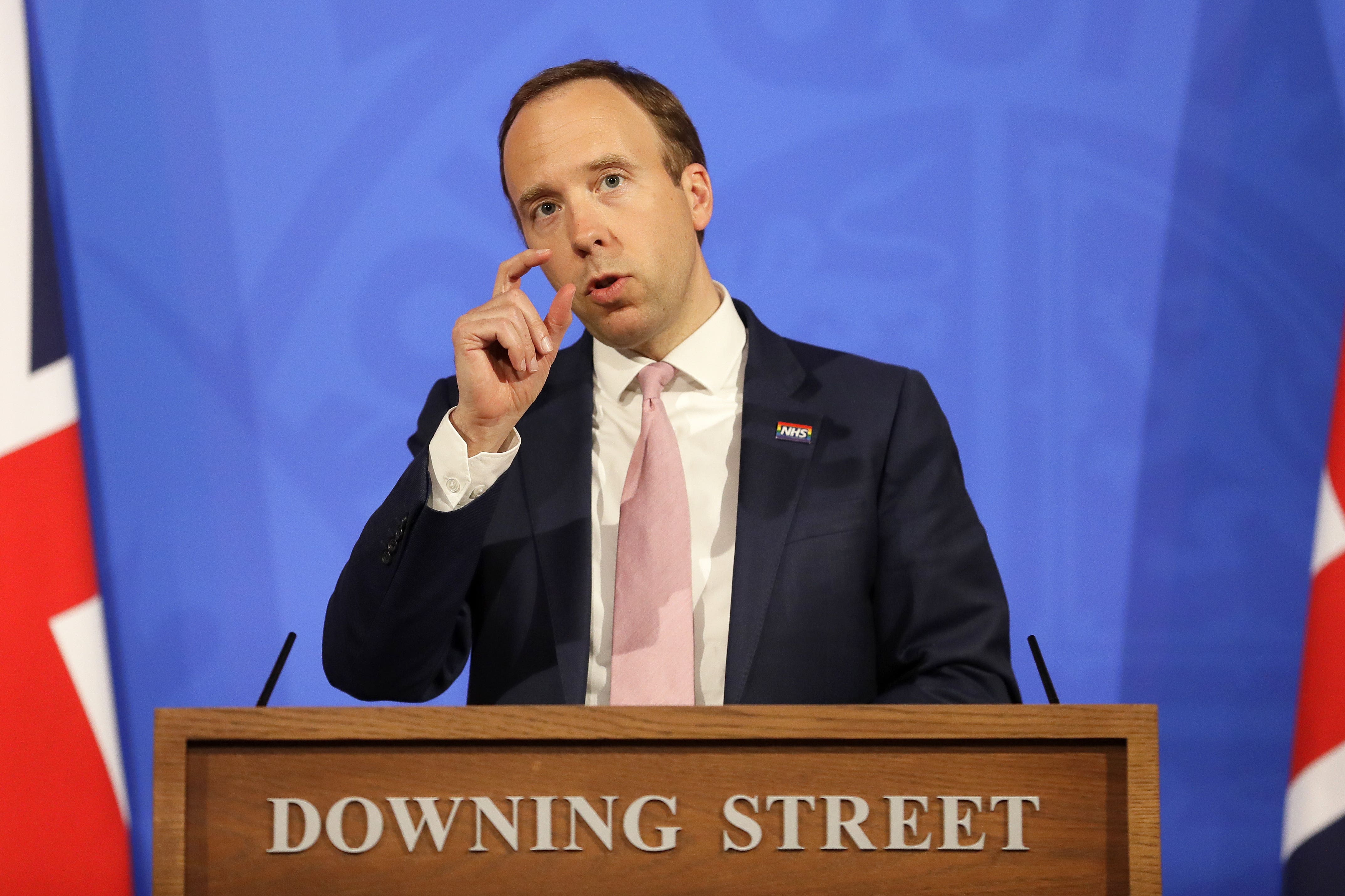Matt Hancock admits protective ring around care homes was not ‘unbroken circle’
The former health secretary was addressing the UK Covid-19 Inquiry.

Your support helps us to tell the story
From reproductive rights to climate change to Big Tech, The Independent is on the ground when the story is developing. Whether it's investigating the financials of Elon Musk's pro-Trump PAC or producing our latest documentary, 'The A Word', which shines a light on the American women fighting for reproductive rights, we know how important it is to parse out the facts from the messaging.
At such a critical moment in US history, we need reporters on the ground. Your donation allows us to keep sending journalists to speak to both sides of the story.
The Independent is trusted by Americans across the entire political spectrum. And unlike many other quality news outlets, we choose not to lock Americans out of our reporting and analysis with paywalls. We believe quality journalism should be available to everyone, paid for by those who can afford it.
Your support makes all the difference.Matt Hancock has admitted the so-called protective ring he said had been put around care homes early in the coronavirus pandemic was not an unbroken one, as he insisted he understands the strength of feeling people have on the issue.
The former health secretary, who appeared before the UK Covid-19 Inquiry on Thursday, was questioned on his use of the phrase at a Downing Street press conference on May 15 2020.
On that day, he said: “Right from the start, we’ve tried to throw a protective ring around our care homes.”
Lead counsel to the inquiry, Hugo Keith KC, put it to him that such a phrase could be open to interpretation but that there was an argument that it gave the impression there was “an impermeable barrier” in the care sector at the time.
I entirely understand why people feel strongly about this and when I first said that, I then went on to explain what I meant
Mr Hancock said he had been “trying to simply summarise that we had taken action”, including giving money to the care sector in March and April, providing PPE (personal protective equipment) and having infection control guidance in place.
Mr Hancock said: “I entirely understand why people feel strongly about this and when I first said that, I then went on to explain what I meant.”
Mr Keith quoted England’s former deputy chief medical officer, Professor Sir Jonathan Van-Tam, who said in his statement to the inquiry: “My view is a ring is a circle without a break in it.”
Addressing Mr Hancock, the barrister asked: “However you describe the protective processes you put in place around the care sector, they did not form an unbroken circle, did they?”
Mr Hancock replied: “It is quite clear from the evidence that Professor Van-Tam is right.”
The inquiry also heard that Mr Hancock’s then-media adviser had warned him there might be a problem with the accuracy of Mr Hancock having told then-prime minister Boris Johnson that care homes had been “locked down” before the rest of the country.
A WhatsApp message from the adviser to Mr Hancock on May 13, shown to the inquiry, said: “Matt, we might have some issues with you telling the PM we ‘locked down’ care homes before the rest of the country.”
Mr Hancock told the inquiry: “It depends on how you define locked down.”
He said he had been trying to respond to a criticism at the time that action to protect people in care homes had come later than locking down the rest of the country, which he said “was not true”.
Mr Keith said Mr Hancock’s adviser had set out the measures in place from mid-March for care homes, which included reviewing visitor policy and emphasising good hand hygiene for visitors.
The barrister added: “In no universe, Mr Hancock, could those measures possibly be described as locking down the care homes.”
Mr Hancock replied: “I think that’s what Jamie (the adviser) was trying to tell me.”
The former minister also rejected a suggestion which the inquiry heard had been made by Sir Patrick Vallance in his diaries, that the former chief scientific adviser had been “told off” by Mr Hancock around the issue of movement of people between care homes.
Mr Keith said Sir Patrick’s notes suggested he had been telling Mr Hancock “for some time” that the movement of people was a significant issue, having raised it in February.
The barrister put it to Mr Hancock that the then-health secretary had said such movement would not be stopped as it was essential for the sector.
He asked Mr Hancock “whether there was any truth to that suggestion that Sir Patrick Vallance had asked you and told you that the issue of moving people between care homes was important and that you had rejected that as an issue – he says ‘I got told off’, and that you only belatedly appreciated that there was a very real problem”.
Mr Hancock said: “That is not correct. It’s not a fair reflection of my position. Firstly, I wouldn’t deign to tell off Patrick Vallance, who is a very eminent scientist and businessman.”
He said he also had a challenge at the time to balance the needs of the care sector to have staff and the requirement to reduce transmission.
Mr Hancock said: “It is not reasonable to just take one side of that argument, you have to take both into account.”